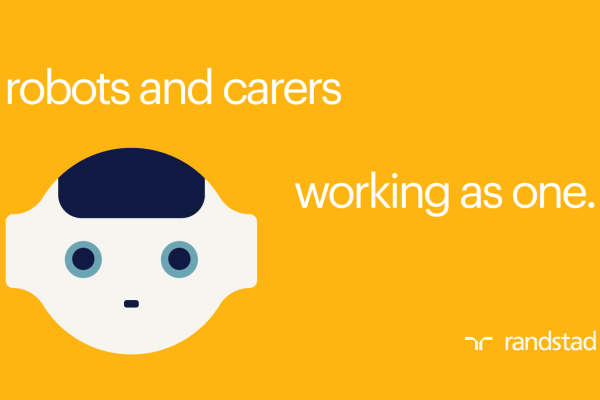what is the future of care?
The topics of robotics, Artificial Intelligence (AI) and automation are on everyone's lips. As technology continues to develop at an ever-increasing rate, the question being asked is how will this affect employment? Particularly in the health and social care sector.
automation efficiencies...
to help carers
Current figures by the Office of National Statistics put the number of people employed within the UK at around 32.4 million and research by Price Waterhouse Cooper suggests that 20% of these jobs will become automated over the next 10 years - that's around 6.5 million jobs!
The NHS and social care are currently under immense strain from multiple sources with A&E increasingly overcrowded, a lack of beds for patients, an ageing population in need of care and the 2016/2017 budget coming in at a whopping £140 billion. It’s difficult for the UK to continue funding what equates to the fifth biggest employer in the world.
However, there is a lifeline and the cure could be technology. Advancements in AI, digital assistants and robotics have had mixed responses in relation to job security, with automation being touted as a potential threat in some industries. On the other hand, in the health and social care sector automation is showing positive signs. Helping to improve operational efficiencies and easing staff pressure are just some of the ways it is allowing better quality care.
are care-bots the answer?
These robots can provide companionship, aid the elderly and less mobile and provide general assistance for simple tasks such as medication prep or setting reminders. They can also constantly monitor whether patients are safe and well, which can allow patients to maintain some of their privacy. With the more mundane tasks covered, this will leave human carers free to focus their time on the more personal aspects of the job. In the past, people were hesitant to engage with robots or AI but social norms are changing and what was once reluctance is being transformed into acceptance.
Care-bots can also help to support people suffering from poor mental health. Mental ill health is extremely common, with 1 in 4 people reporting that they experience at least one mental health problem each year. Depression is one of the most frequently reported mental health problems, particularly among the elderly, affecting 22% of men and 28% of women aged 65 years and over.
Care-bots such as Paro - a multi-sensory robot with numerous uses such as therapeutic recovery - have been specifically designed so they need to be looked after. These robots provide support while also encouraging owners to be self-sufficient.
With that said, robots will never replace carers and should be seen as aids to the industry. Currently and for the foreseeable future, robots and AI will not be sophisticated enough to understand and interpret the nuances of human emotion, verbal communication or tactile touch. In particular, robots lack the fundamental care emotions of empathy and compassion. Meaning that whilst they can complete the more rudimentary tasks, the most important aspects of care, like compassion, feeling and empathy can only be done by a human.
the future of...
the NHS and care automation
The NHS turned 70 on 5th July 2018, over the years the institution has had to adapt to significant change but has remained at the forefront of healthcare innovation.
From the DNA structure reveal in 1953 to the vaccination programme for polio and diphtheria launched in 1958, the NHS has had a clear mission to promote good health across the UK. These values will continue to be embraced moving forward and examples such as #NHS70DigitalWeek demonstrate how digital health innovations continue to transform the organisation. A ground-breaking virtual reality panel discussion entitled ‘Are The Bots Taking Over?’ is just one example of the forward-thinking approach the NHS is taking.
The NHS is bought into the idea of investing in technology to help support its future. By implementing a long-term strategy of ‘job automation’, it’s estimated that the NHS could free up frontline time worth up to £12.5 billion.
Lord Darzi (a pioneer in robotic-assisted minimally invasive surgery) and his colleague, Lord Prior (a former Conservative health minister) have argued for an injection of cash rising to more than £50 billion a year for the NHS by 2030, and £10 billion a year for social care. This would directly impact workers’ time and resource.
The table below shows predictions for the amount of time that could be freed up for carers due to automation efficiencies.
a rewarding career.
Working in health and social care has always been an extremely rewarding career, but there have been challenges in the past particularly due to the skills shortage. However, with plans for vast amounts of money to be put into the sector and a robust automation plan to aid workers there has never been a better time to get into care.


